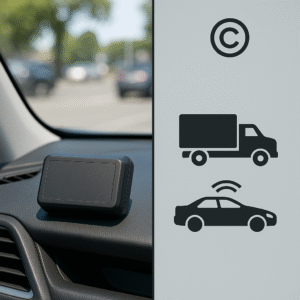Can You Legally Put a GPS Tracker on a Vehicle You Own in Delaware?

Delaware Law on Vehicle Tracking Devices
Delaware law prohibits placing an electronic or mechanical tracking device on a motor vehicle without the consent of the vehicle’s registered owner, lessor, or lessee. This provision exists to prevent unauthorized tracking and surveillance.
For a broader look at state-level rules, see our guide on privacy laws in technology use and how they apply across different contexts.
- If you are the sole registered owner, your consent satisfies the ownership requirement.
- However, that does not guarantee legality if your intent is to track another person.
Privacy and Stalking Concerns
Even if you legally own the vehicle, placing a tracker to monitor another person can raise serious legal risks:
- Stalking laws: Delaware’s stalking statute criminalizes conduct that causes fear or distress, which can include electronic monitoring. Learn more about Delaware’s harassment and stalking laws.
- Invasion of privacy: A person being tracked without their knowledge may bring civil claims against you. See also our article on civil privacy claims.
- Harassment: Repeated, unwanted monitoring may qualify as harassment under Delaware law.
Thus, ownership of the car does not give you unlimited rights to monitor people who use it.
Practical Implications
- If you are using a tracker to protect your own property (e.g., for theft prevention), Delaware law supports your right to consent as the registered owner. Read about using GPS trackers for theft prevention.
- If you are installing the tracker to surveil a spouse, partner, or employee without their knowledge, you may still risk criminal charges or civil liability. For workplace use, check our guide to employee monitoring policies.
- Written consent from the driver is the safest way to avoid disputes and protect yourself legally.
Safer Alternatives
- Get written consent from anyone who regularly drives the vehicle. See our template on drafting consent agreements.
- Use shared location apps where both parties agree to tracking.
- For business fleets, adopt a clear company policy explaining GPS tracking for operational and safety purposes.
Final Thoughts
In Delaware, being the sole registered owner allows you to authorize a GPS tracker on your vehicle. But ownership alone does not shield you from privacy, stalking, or harassment laws if your purpose is to monitor someone else. The safest approach is to get consent in writing and ensure your use of tracking technology cannot be interpreted as harassment.
Consider consulting with a criminal or privacy lawyer to review your situation. You can even send them a copy of this blog, and they will read it for free since they are sponsoring this chat. Or, if you want help drafting a consent form, consider using a lawyer-supervised AI they have a free trial and a custom process for agreements. (Sponsored)
Disclaimer: This blog is for informational purposes only. It is not legal advice. Laws can change, and outcomes depend on the specific facts of each situation. Always consult with a licensed attorney for advice tailored to your circumstances.
